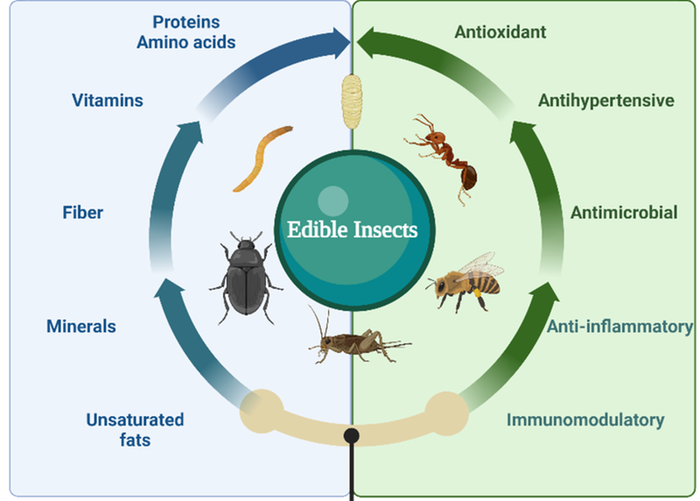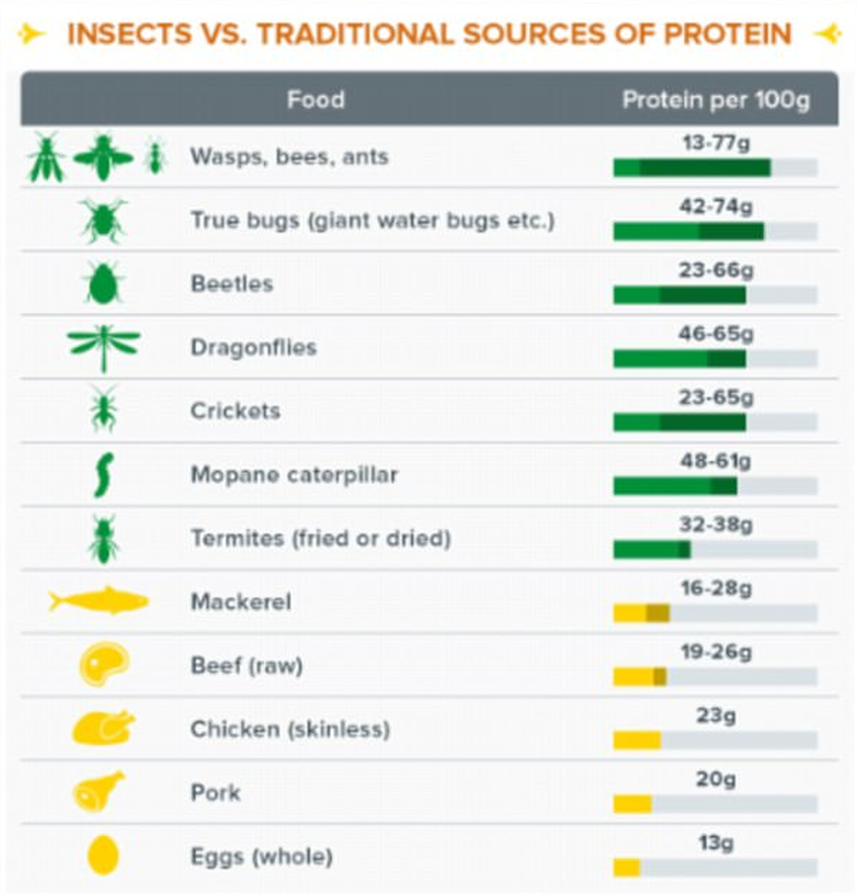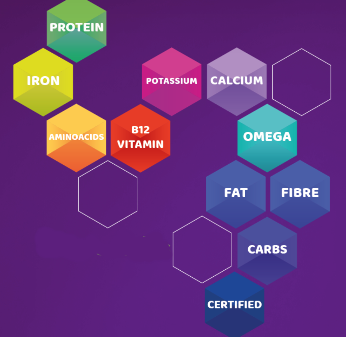Benefits
Fatty acids and minerals, but no carbohydrates The nutritional benefits of insects do not lie in protein alone. They are also a good source of fatty acids and minerals, while being low in carbohydrates, except for fiber, which is also necessary for maintaining good digestive health.



